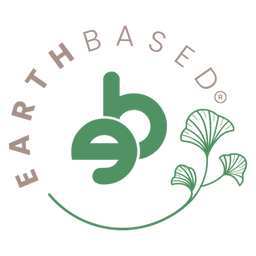In our Vegan Vichaar Series, we address common queries surrounding veganism and its impact on our lives and the planet. One frequently debated topic is whether humans are biologically designed to eat meat. This question not only invites scientific scrutiny but also ethical considerations regarding our dietary choices. Let’s delve into the evidence and arguments surrounding this question, while also exploring the profound benefits of choosing a vegan lifestyle.
1. The Anatomy and Physiology of Humans
Teeth and Jaw Structure:
One of the primary arguments for meat consumption is based on human anatomy. Humans have a set of teeth that includes flat molars suited for grinding plant material, rather than the sharp canines found in carnivorous animals. This anatomical feature suggests that we are more adapted to a herbivorous or omnivorous diet.
Dr. Richard Leakey, a renowned anthropologist, says, “You can’t tear flesh by hand, you can’t tear hide by hand. Our anterior teeth are not suited for tearing flesh or hide. We don’t … have large canine teeth, and we wouldn’t have been able to deal with food sources that required those large canines.”
Digestive System:
Our digestive system also plays a crucial role in this debate. Humans possess a relatively long gastrointestinal tract compared to carnivores, which typically have shorter tracts that facilitate the rapid digestion of meat. The length of our intestines allows for the breakdown of fibrous plant materials, further indicating that our bodies are designed to thrive on a plant-based diet.
- Colin Campbell—director of the Cornell-China-Oxford Project on Nutrition, Health, and Environment and author of The China Study —says, “In the next ten years, one of the things you’re bound to hear is that animal protein is one of the most toxic nutrients of all that can be considered.”
Stomach Acidity:
While it is true that humans have stomach acid capable of breaking down meat, the acidity level is not as strong as that found in true carnivores. This difference suggests that we are not designed to primarily consume meat.
2. Nutritional Needs and Alternatives
Protein Sources:
A common misconception is that animal protein is the only source of sufficient protein for humans. In reality, many plant-based sources provide all the essential amino acids needed for optimal health. Legumes, nuts, seeds, whole grains, and plant-based protein powders can fully support muscle growth and repair without the need for meat.
Vitamins and Minerals:
Certain nutrients, such as vitamin B12, are often cited as reasons for needing meat in our diets. However, B12 can be easily obtained through fortified foods and supplements. The same goes for omega-3 fatty acids, which can be sourced from flaxseeds, chia seeds, and algae-based supplements.
3. Ethical and Environmental Considerations
Animal Welfare:
Choosing to adopt a vegan lifestyle not only benefits personal health but also champions the ethical treatment of animals. The meat industry often involves inhumane practices, and many people find that transitioning to a plant-based diet aligns better with their values regarding compassion and respect for all living beings.
Environmental Impact:
The environmental toll of meat production is significant. It contributes to deforestation, greenhouse gas emissions, and water depletion. By opting for a vegan lifestyle, individuals can reduce their carbon footprint and help protect the planet for future generations.
4. Contributions of Veganism to Lives and Nature
By choosing to leave meat behind, vegans do not sacrifice anything of value; instead, they contribute positively to many lives, including their own and the lives of animals. Here are a few ways veganism benefits the planet and society:
- Healthier Population: A plant-based diet is linked to lower rates of chronic diseases, contributing to a healthier population. This shift can reduce healthcare costs and improve overall quality of life.
- Biodiversity Preservation: By reducing the demand for meat, veganism helps to preserve natural habitats and biodiversity. This is crucial for maintaining the balance of our ecosystems.
- Sustainable Practices: Veganism encourages sustainable agricultural practices, promoting local farms and seasonal produce, which can lead to better soil health and reduced reliance on harmful pesticides.
- Compassionate Choices: Every meal is an opportunity to promote kindness. By choosing plant-based foods, individuals stand in solidarity with the movement towards a more humane world.
Conclusion: A Plant-Based Future
The argument that humans are designed to eat meat is deeply rooted in a misunderstanding of our anatomy, nutrition, and ethical responsibilities. Instead of seeing a transition to a vegan lifestyle as a loss, it is vital to recognize it as an opportunity for personal growth, enhanced well-being, and positive change for our planet.
By embracing a vegan lifestyle, we not only enhance our own health but also contribute to a more compassionate and sustainable world. So, the next time you ponder whether humans are designed to eat meat, remember the many benefits that come from choosing plants over animals.
Explore the vegan options available at EarthBased and join us in making a difference for ourselves, the animals, and Mother Nature!
